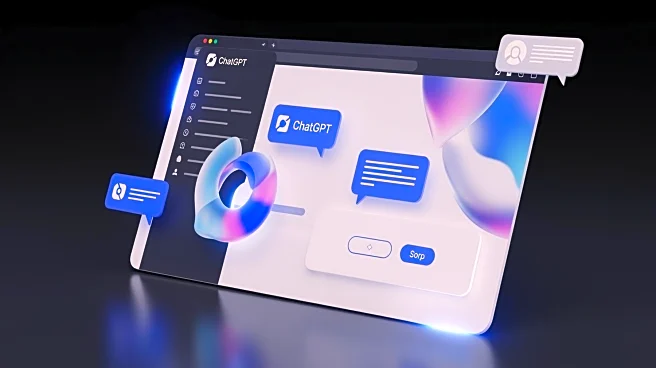What's Happening?
OpenAI has announced the launch of Atlas, a new web browser integrated with ChatGPT, designed to allow users to interact with web pages through a feature called Agent Mode. This mode enables the browser to perform
tasks such as clicking, scrolling, and reading through tabs autonomously. The introduction of Agent Mode marks a significant step in OpenAI's efforts to bring 'agentic' AI capabilities to end users, following previous releases of web browsing agents. The browser aims to streamline online tasks, although it currently operates in a preview mode, indicating ongoing development and refinement.
Why It's Important?
The integration of AI into web browsing through Atlas represents a potential shift in how users interact with digital content, offering increased efficiency in managing online tasks. This development could impact various sectors, including technology and business, by reducing the time and effort required for routine online activities. However, it also raises concerns about privacy and data security, as the AI's ability to access and process personal information could lead to vulnerabilities. Stakeholders in cybersecurity and digital privacy will need to address these issues as AI-driven browsers become more prevalent.
What's Next?
As Atlas continues to evolve, OpenAI may expand its capabilities beyond the current preview mode, potentially introducing more advanced features and broader applications. The company is likely to focus on enhancing the browser's security measures to mitigate privacy concerns. Additionally, feedback from early users will play a crucial role in shaping future updates and improvements. The broader tech industry will be watching closely to see how AI integration in web browsing influences user behavior and digital interaction standards.
Beyond the Headlines
The introduction of AI-driven browsers like Atlas could lead to ethical discussions about the balance between convenience and privacy. As AI systems become more capable of autonomous actions, questions about accountability and transparency in AI decision-making processes may arise. This development might also influence cultural perceptions of AI, as users become more accustomed to interacting with intelligent systems in everyday tasks.









